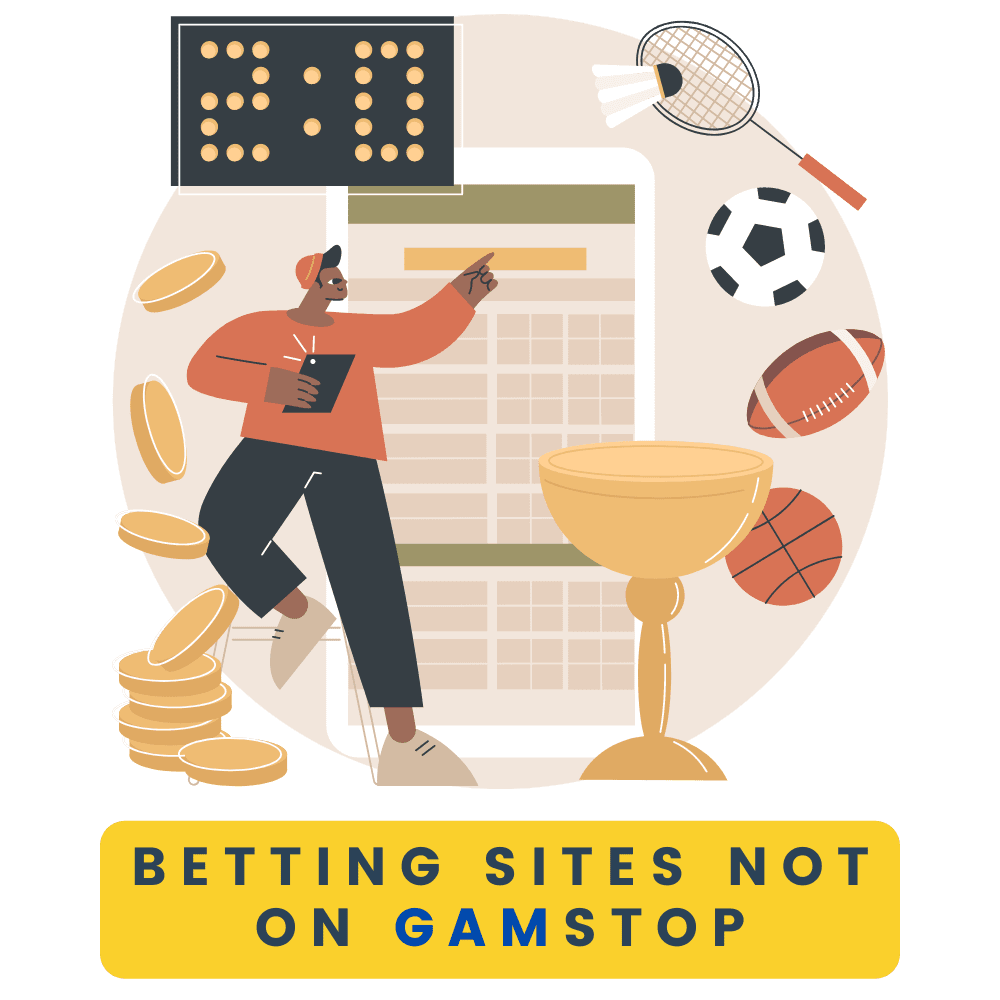In 2025, the landscape of sports gambling in Britain continues to evolve dramatically. Beyond the regulated networks like GamStop—which enable players to self-exclude across UK-licensed sites—there’s a growing trend of UK sports betting sites not on GamStop. These platforms offer unique, sometimes controversial, alternatives that appeal to a segment of bettors looking for more freedom, flexibility, or variety in their wagering experience.
1. Flexibility and Freedom: A Competitive Draw
One of the main reasons players are turning to UK sports betting sites not on GamStop is the flexibility they offer. Without mandatory integration in the self-exclusion scheme, these sites often feature:
-
Faster account setup and fewer restrictions on deposits and withdrawals.
-
Extended betting markets, including smaller soccer leagues, esports, and virtual sports.
-
Alternative verification systems, such as manual ID checks, allowing instant wagering without wait times.
This freedom can be attractive to experienced bettors who crave speed and variety, though it also raises one of the industry’s most sensitive ethical questions.
2. Technology-Driven Innovation on the Fringe
Non-GamStop platforms have become hotbeds for technological advancement, incorporating:
-
Blockchain and crypto-friendly transactions, reducing fees and enhancing privacy.
-
AI-driven personalization, offering tailor-made odds, in-play strategies, and curated promotional offers.
-
Better UI/UX experiences, inspired by gaming and fintech startups, including intuitive mobile interfaces, live-streaming events, and chat-integrated betting advisors.
These innovations often appear first on non-GamStop sites, pressuring GamStop-affiliated platforms to modernize to stay competitive.
3. Ethical Concerns and Regulatory Pressure
With innovation comes scrutiny:
-
Gambling addiction risks intensify as non-GamStop sites aren’t part of UK self-exclusion schemes.
-
Regulatory grey areas—many operate from abroad, offering services to UK consumers while bypassing direct UKGC oversight.
-
Consumer protection gaps, especially if issues arise with withdrawals or unfair terms.
In response, advocacy groups and regulators are stepping up. The UK Gambling Commission is exploring options to enhance cross-border enforcement and is urging international cooperation to protect vulnerable players. Meanwhile, independent charities are calling for universal, globally accessible self-exclusion measures.
4. Market Impact on Mainstream Betting
The rise of these non-GamStop sites is having noticeable effects on mainstream, regulated betting platforms:
-
Odds competition: UK-licensed sites are improving price competitiveness and market depth.
-
Promotional innovation: Better loyalty rewards, free bets, and enhanced cash-out features are now industry-wide.
-
Enhanced in-play services: Live streaming, mobile alerts, and strategy insights have all been amplified.
This cross-pollination is blurring the lines between strictly regulated and offshore betting, leveling the playing field in unexpected ways.
5. User Experience: A Tale of Two Bettors
The impact of non-GamStop sites hinges on the profile of the bettor:
| Bettor Type | Appeal of Non‑GamStop Sites | Potential Risks |
|---|---|---|
| Experienced | Niche markets, crypto bankrolls, fast payouts | Lack of self‑exclusion, uncertain legal recourse |
| Casual/Newbie | Smooth signup, attractive bonuses, gamified features | Addiction risk, withdrawal delays, hidden terms |
For experienced bettors, the upside can outweigh the risks. Casual users, however, might unknowingly expose themselves to harmful practices.
6. Looking Ahead: What the Future Holds
By the end of 2025, expect the following developments:
-
Regulatory evolution: The UKGC may tighten rules on international operators actively targeting UK customers, possibly exploring mandatory cross-jurisdiction exclusion frameworks.
-
Responsible gambling tech: Integration of AI-based “dark pattern” detection, proactive warnings, and smarter risk limits—even on non-GamStop platforms.
-
Market segmentation: Licensed operators will double down on licensing credibility and player safety, while offshore sites will cater to tech-forward, seasoned bettors.
Conclusion: Redrawing the Betting Map
The surge of UK sports betting sites not on GamStop in 2025 is catalyzing rapid change—fueling competition, innovation, and debate. These platforms are pushing mainstream operators to modernize and challenging regulators to rethink how to protect vulnerable gamblers in an interconnected digital age.
If you choose to venture beyond GamStop, be well-informed: understand the risks, choose platforms with transparent terms, and practice self-control. In this shifting landscape, knowledge isn’t just power—it’s protection.

